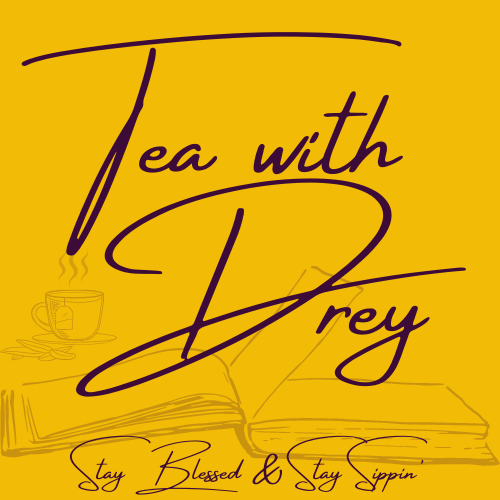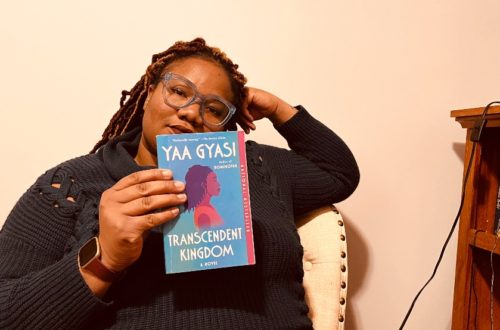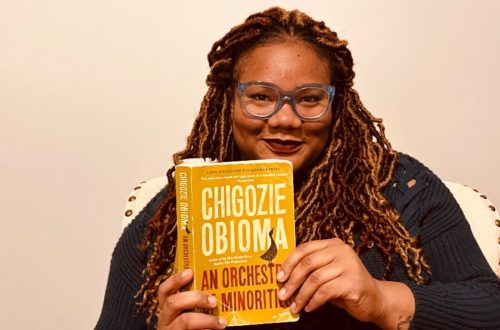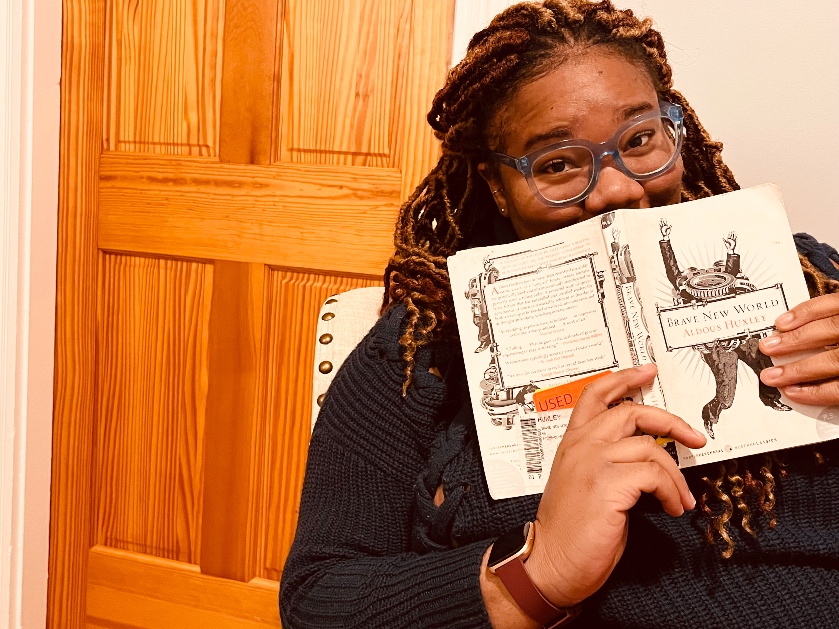
Drey’s Take on “Brave New World”
I love the finishing pages of a book. It’s almost as if the narrator or protagonist realizes they have a limited time left on earth and begins to drop gems and life lessons before they pass on. And in Aldous Huxley’s “Brave New World,” it IS a matter of life and death.
“The world’s stable now. People are happy; they get what they want, and they never want what they can’t get. They’re well off; they’re safe; they’re never ill; they’re not afraid of death; they’re blissfully ignorant of passion and old age; they’re plagued with no mothers or fathers; they’ve got no wives, or children, or lovers to feel strongly about; they’re so conditioned that they practically can’t help behaving as they ought to behave. And if anything should go wrong, there’s soma. Which you go and chuck out of the window in the name of liberty, Mr. Savage. Liberty!”
Mustapha Mond in “Brave New World”
Storytime.
Huxley’s “brave new world” is one in which the society believes they have freedom, well everyone outside those in power. However, we, the readers, know that this society isn’t living in true freedom. Religion, art, science, history, and any subject that threatens the “stability” of society are thrown away. The entire familial unit, which is a form of stability, has been McDonaldized. Women are either sterilized or left to religiously take contraceptives. Sexual pleasure is a requirement and monogamy, a taboo. As the hypnopaedic suggestion states “Everyone belongs to everyone else.”
But there’s a catch to this “free” and “stable” world. This world cannot be what it was created to be without a caste system. A system that is enforced way before the person is “hatched.” The Alpha and Beta castes are allowed to individually grow inside their respective eggs, whereas the remaining three castes (Gamma, Delta, and Epsilon), grow by Bokanovsky’s Process. As the Director says, “a bokanovskified egg will bud, will proliferate, will divide.” So the people in these castes grow as identical units, as much as ninety-six units. If sharing their resources aren’t enough, their caste is further enforced by the conditioning they receive, such as micro-dosing them to diseases and alcohol. After the person is “born,” they are segregated into their various conditionings which solidifies their incapability to leave their functions to society that the members were predestined for.
Meet Bernard.
This is the society that Huxley sets his first protagonist, Bernard, in. Bernard is an Alpha who does not have the physical stature of an Alpha and thus feels like an outcast. Furthermore, Bernard wants to feel like he has more control of his life than he currently has; however, once he tastes a bit of power, he lets go of this fantasy and embraces the World State for what it is.
Then there’s John.
Across the pond in New Mexico lives John, whose parents were indoctrinated by the World State. Religion, art, and monogamy are the norm. Ceremonies are a blend of Christianity and the indigenous religion. As opposed to the way that Huxley described the people of the World State, Huxley decides the describe the people of this culture as barbaric “savages” (we’ll get into Huxley’s racism later).
Combine the Protagonists to Form the Story.
Long story short. Bernard realizes that John is the child of the Director who wants to exile Bernard to Iceland. Bernard makes a power play and brings John and his mom, Linda, to Central London to shame the Director for fathering a son. Now Bernard is a popular guy because he has the country’s only “fathered” individual who also happens to be from an entirely different culture than that of the World State. Bernard no longer feels like an outcast, or if he does, he has John to reinforce his popularity.
John on the other hand is living through cognitive dissonance. Since his childhood, he’s desired to see the “brave new world” that his mom told him stories of. John was an outcast on the New Mexico Reservation because he was White and his mother promiscuous. John believed that in going to the World State, he would finally be accepted. Instead, he is welcomed by society as their “savage.” His fantasy also breaks down because his indoctrinated values and beliefs are those of the New Mexican Reservation. These values and beliefs that we know very much do not align with the World State. Unable to fix his cognitive dissonance, John starts a revolt which ultimately leads to his exile and death.
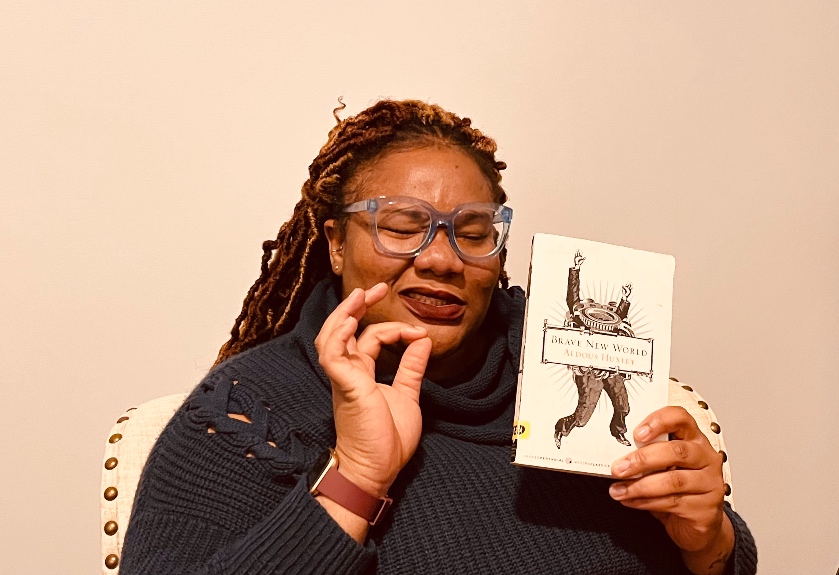
Drey’s Thoughts.
Alright. I’m sure you didn’t come here for the plot of Brave New World. You can find that anywhere. You want to know my thoughts on this classic that’s been a part of the literary canon for some time, right. I want to emphasize that the views and thoughts said here are those of my own and influenced by the institutions ( from family to schooling to religion) that have made me who I am today.
First things first, the world that Huxley creates in the World State is not one that I would want to find myself in. I’ve always lived by the definition of freedom that allows me to choose the right thing. For me, I deem the right things to be equality, freedom to choose life, and relationships as a foundation. All of which don’t exist in the World State. Lord knows I would’ve been banished had I been among the first persons (the people at the beginning of this society) of Central London in A.F. (after Ford). Also, let’s not forget that at the time Huxley was writing this book, eugenics was becoming a global movement. All I have to say is that creating folks in a lab smells a little too much like eugenics for me!
However, my biggest problem with “Brave New World” is not the dystopian setting. There are many dystopian books that don’t make steam come out of my ears. No, it’s the way that Huxley interacts with a Native American reservation that throws me. He doesn’t even bother to specify which tribe. He falls into the colonialist trap of not understanding the peoples and cultures of a land and lumping them together. I know this was published in 1931; however, it still makes me upset that Europeans were given voyeuristic permission to “observe” Indigenous persons for pleasure is beyond me. Like who invited yall? It’s giving White mobs watching their fellowmen lynch Black persons.
And what’s with using the term savage for a human being? I cringed every time I read that word. During the 1920s and 1930s, Native Americans were literally in a battle with the United States government for their livelihood. Between 1887 and 1933, Native Americans lost more than half of their tribal land to sales tax, land thieves (manifest destiny anyone?), and governmental sales of their land. In 1924, Congress passed the Indian Citizenship Act, which granted citizenship to all Native Americans. But this Act and the policies that were created were not created with Native American leaders at the table. Had they been there, they would have denied fine print. Through this act, their federal land and treaty rights were no longer protected. Many tribes did not accept the Act. They felt it would be a betrayal to their sovereign Nations and ways of governing. And even with this Act, some states barred them from voting. It’s the audacity for me. Can you imagine going back to your home only to see it taken up by a thief? Then this thief kills members of your family; brings in their own family; creates a new rule system; and then tells you that you can stay if you adhere to their rules?
There may be folks out there who would defend Huxley as being a victim of his society’s indoctrination. After all, aren’t we all? It’s not Huxley’s fault that he was born into a society that was out here colonizing, propagating eugenic ideas, and creating pseudoscience (#scientificracism). I also know that this book wasn’t written for me. Huxley probably never imagined that a nice educated Black woman would be reading his book. It would be nice if I could give him a pass but if Black folks aren’t given the same slap on the wrist then why should Huxley. The reality is that authors and philosophers, two identities that Huxley is associated with, are held to higher standards because they have the propensity to do more damage if they perpetuate false ideas. Look at the fact that we are still talking about a book that labels human beings as savages 90 years after it was published!
The Obstacle Smashed
But, the beauty in this experience is that I have been doing many things that individuals before me did not think I would be capable of doing. So, instead of letting the big obstacles stop me, I chose to read black. I brought “Brave New World” up to my experience. Take John. John straddles the line between the “brave new world” and the world of “tradition.” I often find myself toeing this line. If I were to be a biblical character, I would be Jacob before he becomes Israel. Because the way I be wrestling? Legendary. I should’ve received many name changes by now, but it’s ok.
I have wrestled with the idea of ethnicity to religion and faith. I saw myself in John’s wrestle. Bet Aldous didn’t see that coming! John longed to see the world that his mother knew. He wanted to be a part of the World State because the people and culture that raised him do not accept him. He believes that the culture of his mother would. And I feel that. I have often felt like a unicorn. I am a blend of many ethnicities and cultures. And oftentimes, I have felt left out from the cultures of my parents (Igbo Nigerian) and the place that I grew up (St. Maarten) and have thought that I would be accepted in the US, only to realize that I don’t fit in there either. It can leave one feeling lonely and confused.
Secondly, his struggle also showed that religion can be just as destructive to the pursuit of truth as “happiness” and “stability” As a person in love with her Catholic faith, I also know that many misconceptions and mistruths have been perpetuated because of religion. Let’s not pretend like the Catholic Church was not giving European kings and queens permission to conquer lands and peoples in the name of “mission.”
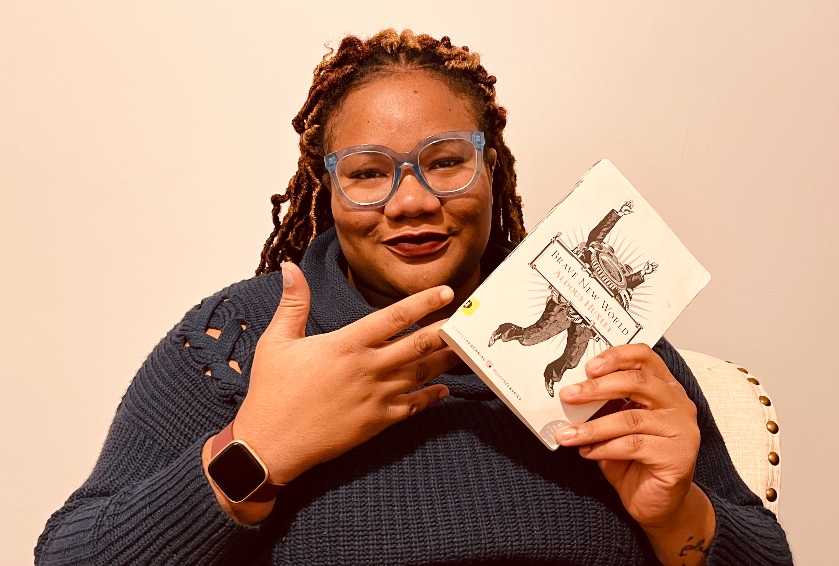
Read or Nah?
Reading “Brave New World” as a 24-year-old woman as opposed to a 15-year-old girl allowed me to read it with a more nuanced perspective. Firstly, it broke down the pedestal that I had put literary canon authors on. Secondly, I had to sit with the question of whether a society can be made up of equal individuals when economic and social institutions are predicated on the necessity for caste systems of sorts. Or is inequality inevitable?
I think I feel torn on whether this is a book that I would recommend others to read because I do believe that it perpetuates some dangerous biases. However, I don’t think I have another book in mind that explores similar questions as this work. But best believe that I’m on the hunt!
Anyways that’s all I have for now but I would love to hear your thoughts on the question I posed: Is inequality inevitable if stability is the goal?
Love yall!
Stay Blessed & Stay Sippin’
Drey
Disclaimer: Though influenced by the institutions that formed me, the views expressed here are those of my own at a specific snapshot in time. I make no promises that said ideas will remain constant as I age.


